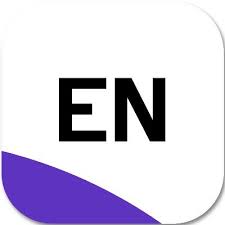![]()
Publication Ethics
1. Author Responsibilities
a) Originality and Plagiarism
Authors must ensure that their work is original and has not been published elsewhere. Plagiarism in any form, including presenting someone else's work as their own, not crediting sources, and misuse of copyright, is unacceptable.
b) Acknowledgment of Sources
Authors should properly acknowledge the work of others. Proper citation must be given for every reference or quote from previous works.
c) Multiple, Redundant, or Concurrent Publication
Authors should not publish manuscripts describing the same research in more than one journal or primary publication. Submitting the same manuscript to more than one journal concurrently is unethical and unacceptable.
d) Authorship of the Paper
Authorship should be limited to those who have made a significant contribution to the research. All significant contributors should be listed as co-authors. Others who have participated in certain substantive aspects of the research should be acknowledged or listed as contributors.
e) Disclosure and Conflicts of Interest
Authors must disclose any financial or other substantive conflict of interest that might influence the results or interpretation of their manuscript.
2. Editorial Responsibilities
a) Publication Decisions
Editors are responsible for deciding which of the articles submitted to the journal should be published. The decision should be based on the paper's validity and its importance to researchers and readers.
b) Fairness
An editor should evaluate manuscripts for their intellectual content without regard to the authors' race, gender, sexual orientation, religious belief, ethnic origin, citizenship, or political philosophy.
c) Confidentiality
The editor and any editorial staff must not disclose any information about a submitted manuscript to anyone other than the corresponding author, reviewers, potential reviewers, other editorial advisers, and the publisher, as appropriate.
d) Disclosure and Conflicts of Interest
Unpublished materials disclosed in a submitted manuscript must not be used in an editor's own research without the express written consent of the author.
3. Reviewer Responsibilities
a) Contribution to Editorial Decisions
Peer review assists the editor in making editorial decisions and through the editorial communications with the author may also assist the author in improving the paper.
b) Promptness
Any selected referee who feels unqualified to review the research reported in a manuscript or knows that its prompt review will be impossible should notify the editor and withdraw from the review process.
c) Confidentiality
Any manuscripts received for review must be treated as confidential documents. They must not be shown to or discussed with others except as authorized by the editor.
d) Standards of Objectivity
Reviews should be conducted objectively. Personal criticism of the author is inappropriate. Referees should express their views clearly with supporting arguments.
e) Acknowledgment of Sources
Reviewers should identify relevant published work that has not been cited by the authors. Any statement that an observation, derivation, or argument had been previously reported should be accompanied by the relevant citation.
f) Disclosure and Conflicts of Interest
Privileged information or ideas obtained through peer review must be kept confidential and not used for personal advantage. Reviewers should not consider manuscripts in which they have conflicts of interest resulting from competitive, collaborative, or other relationships or connections with any of the authors, companies, or institutions connected to the papers.










